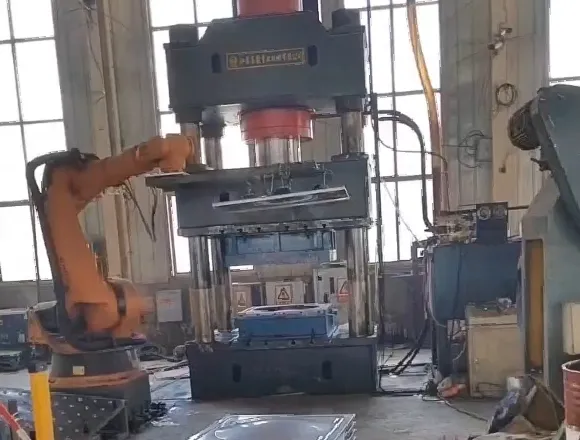loading...
- No. 9, Xingyuan South Street, Dongwaihuan Road, Zaoqiang County, Hengshui, Hebei, China
- admin@zjcomposites.com
- +86 15097380338
- Welcome to visit our website!
The Role of FRP Bars in Enhancing Concrete Strength and Durability
FRP Bars in Concrete A Sustainable Solution for Modern Construction
Fiber Reinforced Polymer (FRP) bars have emerged as a groundbreaking alternative to traditional steel reinforcement in concrete construction. These composite materials, made from reinforced fibers and polymers, offer an array of advantages that cater to the evolving demands of modern engineering.
FRP Bars in Concrete A Sustainable Solution for Modern Construction
Moreover, FRP bars are considerably lighter than their steel counterparts. This reduces the overall weight of the concrete structure, making transportation and installation easier and more cost-effective. Engineers can design more intricate configurations without the risk of compromising structural integrity. This versatility allows for innovative architectural designs that were previously deemed impractical.
frp bars in concrete

The non-conductive nature of FRP also enhances safety in construction. Unlike steel, which can create a risk of electric shock in certain environments, FRP bars do not conduct electricity. This property is especially beneficial in applications involving electrical infrastructure or in seismic zones where the risk of electrical hazards is heightened.
Another critical advantage of FRP bars is their adaptability to various resin formulations, allowing for custom solutions tailored to specific project requirements. This customization can optimize performance characteristics such as strength, flexibility, and resistance to chemical attack, making FRP bars suitable for a wide range of applications, from civil engineering to marine structures.
However, it is essential to mention that the use of FRP bars in concrete does come with some challenges. The initial cost is often higher compared to traditional steel reinforcement, which may deter some projects from adopting this technology. Yet, when considering the long-term benefits, including reduced maintenance and extended lifespan, FRP bars may prove to be a more economical choice in the long run.
In conclusion, the integration of FRP bars into concrete construction represents a significant advancement in materials technology. Their durability, lightweight nature, electrical safety, and customizability position them as a sustainable option for the future of construction. As the industry embraces innovative materials, FRP bars are likely to play a pivotal role in shaping resilient and cost-effective infrastructures worldwide. Embracing such innovations can lead to a sustainable construction industry that meets both current needs and future challenges.
-
Why Choose a Galvanized Water Tank for Your Storage NeedsNewsMay.21,2025
-
The Strength and Durability of FRP GratingNewsMay.21,2025
-
The Importance of Water Treatment Systems for Clean and Safe WaterNewsMay.21,2025
-
The Advantages of FRP Rebar for Construction ProjectsNewsMay.21,2025
-
Say Goodbye to Hard Water with a Reliable Water SoftenerNewsMay.21,2025
-
Maximize Your Water Storage with a Sectional Water TankNewsMay.21,2025
-
The Power of Filter VesselsNewsMay.19,2025
